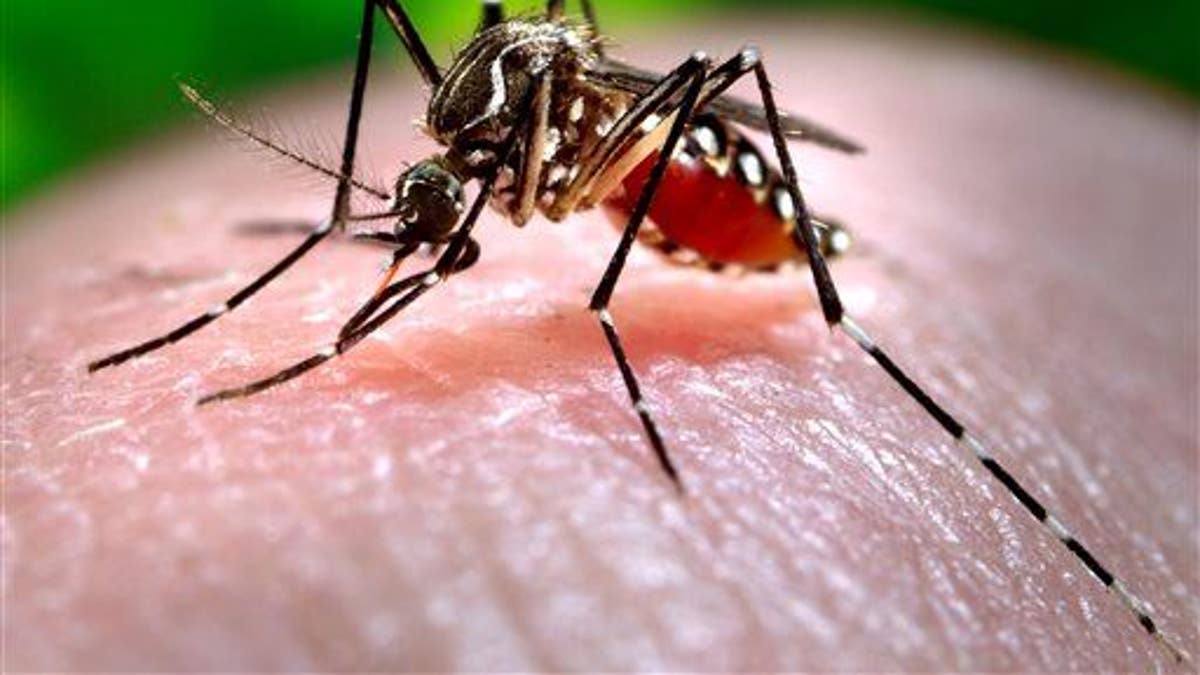
This 2006 photo shows a female Aedes aegypti mosquito acquiring a blood meal from a human host at the Centers for Disease Control. (AP Photo/Centers for Disease Control and Prevention, James Gathany)
Mosquito bites aren't just annoying. They can be lethal, especially in certain parts of the world where they spread malaria and Chikungunya. Now a pilot study out of the London School of Hygiene & Tropical Medicine suggests that our genes dictate whether mosquitoes are attracted to us, researchers report in the journal PLoS ONE.
It's already thought that the scent of our skin is behind the attraction or aversion, but this small study suggests that genes control this. "If we could work out which genes are involved, we could develop new repellents," the lead researcher tells NPR.
The researchers had 18 sets of identical female twins (they are genetically identical) and 19 sets of non-identical female twins (they are no more genetically similar than ordinary siblings) stick their hands in a Y-shaped plexiglass tube filled with 20 mosquitoes.
"Twins that were identical were very similar in their level of attractiveness to mosquitoes, and twins that were [not identical] were very different in their level of attractiveness," says the lead researcher.
"So it suggests that the trait for being attractive or unattractive to mosquitoes is genetically controlled." It's an important step, adds a Harvard public health expert: "The more we learn about what causes a mosquito to find a person, the better we'll be able to design better strategies to protect people."(Check out how many chemicals involved in the scent of our hands can attract mosquitoes.)
This article originally appeared on Newser: Study: Why Mosquitoes Like You More
More From Newser







































